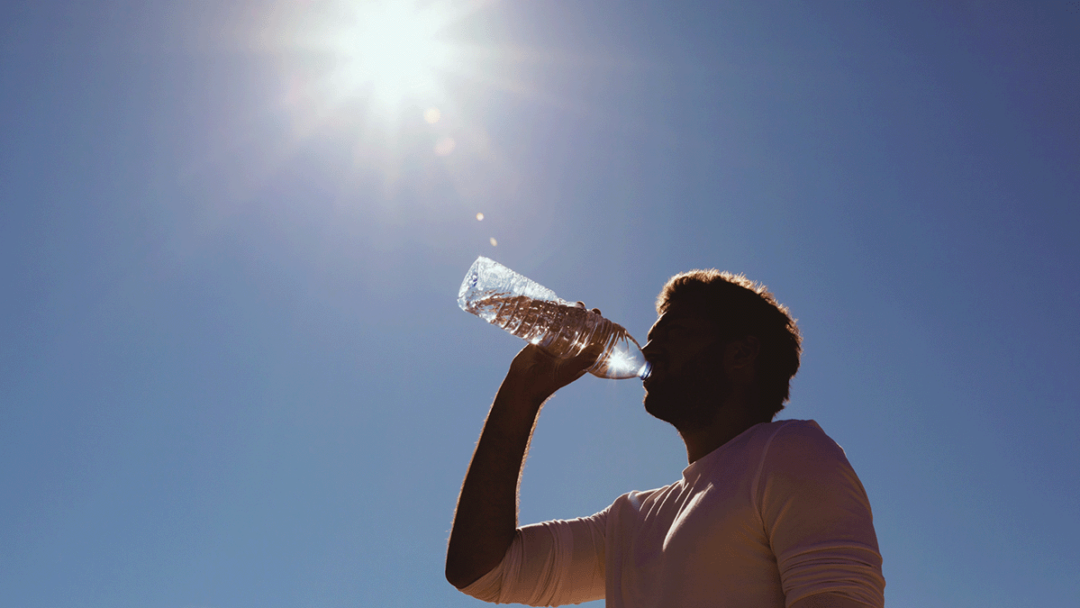Beat the heat: Expert advice on staying cool this summer

The long hot days of summer have settled in, and while not everyone has the luxury of cooling down by the pool, there are some simple things you can do to beat the heat.
Extreme weather events, like those seen during heat warnings or during the aptly named heat dome, can see temperatures rise to above 40 C when humidity is factored in.
When temperatures are that high, the human body begins to struggle and the odds of a heat illness, like exhaustion, rise with the mercury.
“When we develop neurological signs and symptoms like feeling more confused or having behavioural changes, we begin to worry about things like heat stroke, which can have serious consequences if untreated,” says Erin Gallagher, an assistant professor with McMaster University’s Department of Family Medicine.
We spoke with Gallagher, who is a practicing family physician, about the easiest ways of staying cool during sweltering summer days.
Water is your friend
Having a pulse on the forecast is critical in preparing for the day. We base what we wear on what is happening outside, so why not our daily water in-take too?
Gallagher says an easy way to get ahead of a swelter is by hydrating well before you even encounter the hot outdoors.
“You want to make sure that you come into that day hydrated because as you continue to sweat and lose all that good fluid, you’re going to become dehydrated if you don’t replenish both before and after you are hot.”
Signs of dehydration can be tricky to spot. Symptoms most people associate with dehydration are thirst or dark urine. However, Gallagher says those are in fact, late-stage signs that you’re in need of hydration. Monitor for symptoms like dizziness, dry mouth and fatigue.
“If you don’t start the day with a good baseline hydration and you find yourself in a heat situation, you will become tired. You will have an elevated heart rate. Your blood pressure will drop. You will get what is commonly referred to as heat exhaustion,” Gallagher says.
Water can be beneficial beyond just hydration. Those who can access a pool, beach or sprinkler can find some added relief.
“When we cool off in the water, our body temperature is going from a heat source to a cooler source and that feels good almost immediately. And then when we come out of the water, we lose even more heat through evaporation.”
Clothes and sunscreen
Beyond maintaining a healthy hydration level, Gallagher says dressing for the weather can also make a big difference.
“Covering yourself with light, breathable clothes that allow you to continue to dissipate the heat while still covering your skin is ideal during the summer,” she says.
Recommendations for keeping cool can be counter to what is often suggested for protecting your skin. For example, Gallagher says light clothing can be good for keeping cool but it’s not as good at protecting your skin.
For this reason, Gallagher says finding and using the right sunscreen can off-set this deficit in clothing protection.
“Look for sunscreen that is broad spectrum, so that covers both UVA and UVB. We want it to be water resistant, which means that with 40 minutes of activity or being in the water you are still protected. You’re also looking for a cream that has an SPF of at least 30.”
Gallagher recommends applying sunscreen 20 minutes before you’re going to need it. She also suggests applying a balm to your lips and wearing hats to block the sun.
Stay home if you can
Extreme heat can be incredibly dangerous, even fatal, especially for certain segments of the population.
According to Health Canada, heat-related risks are greatest for older adults, young children, and people with chronic illnesses.
Gallagher says while it might not always be practical, staying inside a cool space on unbearably hot days can significantly reduce the odds of a heat illness.
“It’s not always ideal, but a cool or even shady spot, can greatly cut the heat and provide relief.”
Dept. FamMed, EducationRelated News
News Listing

Department of Medicine ➚
Pain to progress: An impactful history of lupus research and care at McMaster
Collaborations & Partnerships, Education, Research
2 days ago

December 10, 2024

